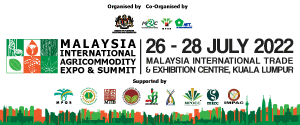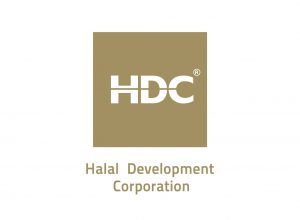KUALA LUMPUR, Dec 3 (Bernama) — Malaysia must comply with international standards to prosper in an integrated global market, the National Economic Advisory Council (NEAC) says. In the New Economic Model – Concluding Part report launched by Prime Minister Datuk Seri Najib Tun Razak Friday, it said concerns on food safety, labour rights, best practices in environmental protection and climate change management will also add to new international protocols that could impose barriers to Malaysian exports to global markets.
The measures proposed cover two fronts, namely complying with a set of international standards to facilitate connection to the global supply chain, and Malaysia as the originator of global standards on products such as halal foods and sustainable palm oil. Malaysia should adopt all relevant international standards and, for each standard, target an improvement in ranking over a specified period to reach the top 10 places of choice for doing business.
In the finance sector, Malaysia has made a commitment to undertake the Financial Sector Assessment Programme (FSAP). It is recommended that Malaysia undertakes assessment of compliance in all the 12 standards under the FSAP. This covers the range of standards on the fiscal, monetary, corporate governance, accounting, payment systems, access to credit, creditor rights and insolvency and capital market standards. Two particularly important standards are for fiscal transparency and insolvency creditor rights (ICR).
In addition, Malaysia should also adopt the credit reporting principles which together with the ICR will provide the basis for the legal and institutional framework to enable a move away from collateral-based lending practices. Malaysia should make it a priority to adopt the Code of Good Practices on Fiscal Transparency to identify gaps in sound fiscal management and take corrective actions covering clarity of roles and responsibilities, open budget process, public availability of information and assurances of integrity.
In addition to this, Malaysia should also adopt the Guidelines on Corporate Governance of State-Owned Enterprises. “Whilst there are various dimensions on sustainability, application of standards affecting the economic, environmental and social dimensions are crucial to build an economic environment necessary for the country to achieve sustainable growth,” NEAC said.
To sustain growth Malaysia needs to preserve its natural resources and safeguard the interest of future generations that must be facilitated by applying appropriate pricing, regulatory and strategic policies to prudently and efficiently manage non-renewable resources. Hence Malaysia needs to outline all measures and targets consistent with the United Nations conventions to protect the environment and address climate change issues such as emission reductions, incentivising the deployment of low-carbon energy technologies to reduce carbon emission by 40 per cent and enforce clean air and water standards.
To equalise labour-related cost of business in Malaysia and other production centres, and to be able to attract skilled labour from abroad, Malaysia should adopt international standards on labour legislation and management. The quality of labour is a function of education and on-the-job skills development. More rigorous application of the Malaysian Qualification Agency standards on education facilities and course curriculum in Malaysian learning institutions is required.
In broadband, Malaysia should be focusing on the basic protocols, interfaces and interoperatability standards between devices. “As we increasingly see the convergence of communications, computing and content in devices, we need standards to enable this,” NEAC said. In the hospitality industry, Malaysia needs to adopt standards which impact the level of service, particularly in the tourism sector e.g. the Pacific Asia Travel Association Code for environmentally responsible tourism, environmental impact assessments, green hotel standards, food and beverage standards, public restroom standards, or home-stay standards.
In the agro-based food production area, the emergence of food security concerns as well as environmental standards necessitate that Malaysia adopts international standards of agro-food production and processing. The country should partner with the European Union, United States and Japan to develop mutually acceptable audits of food production facilities and processes and develop a list of qualified producers, based on internationally benchmarked standards.
Malaysia could regain its stature in the commodities sector by developing standards for the production of sustainable palm oil. The reserves from the palm oil levy could be used for the research towards this end.
Currently, Malaysia is helping to set a global standard for halal certification and should leverage these efforts by converting existing Malaysian standards to be the preferred benchmark for adoption by the global community. Furthermore, Malaysia leads in the development of standards in the delivery of Islamic financial products. Malaysian expertise should become known for speedy, accurate and accountable documentation for the different Islamic products that meet international standards of transactional documentation, so that Malaysia could become the centre for outsourcing of documentation for Islamic financial product transactions from any territory.
The blueprint to guide Malaysia in implementation of standards and its compliance was approved by Cabinet in 2004. The main authority tasked with oversight responsibility is Ministry of Science, Technology & Innovation. Given the cross-cutting nature of standards compliance, and the opportunities for Malaysia to become a standard setter in halal products and palm oil, a review of the standard setting and monitoring authority is required. — BERNAMA



